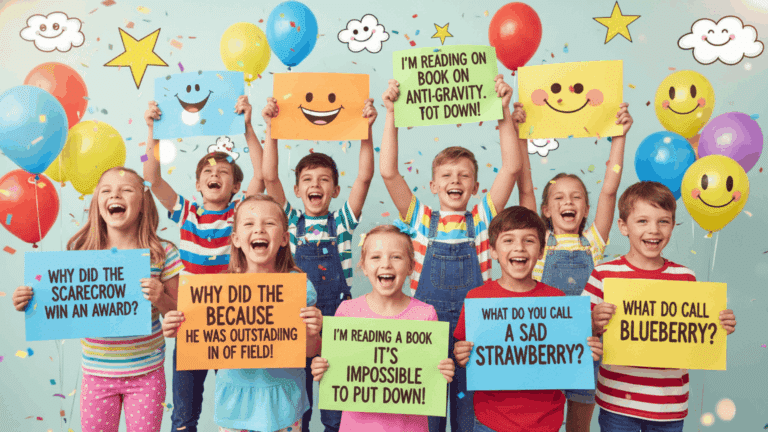Most people stick to the same boring adjectives every day. They miss out on amazing words that could make their writing pop. It’s frustrating when you want to sound more interesting but don’t know the right words to use.
Adjectives that start with Z are your secret weapon. These words pack a serious punch and make you sound smarter instantly.
Let’s check out these powerful Z adjectives that every writer should master.
Adjectives That Start with Z to Expand Your Lexicon
![]()
Want to improve your vocabulary? Here is a complete list of adjectives that start with Z that will make your writing and speaking more engaging.
-
Zany – amusingly unconventional or eccentric.
-
Zealous – showing great enthusiasm or passion.
-
Zestful – full of energy and enthusiasm.
-
Zesty – having a strong, pleasant, and lively flavor or character.
-
Zigzag – having sharp turns or angles alternating in direction.
-
Zincous – relating to or containing zinc.
-
Zippy – lively, energetic, or fast.
-
Zonal – relating to or divided into zones or areas.
-
Zoned – divided into zones, especially for specific uses.
-
Zenithal – relating to the highest point or zenith.
-
Zephyrous – like a gentle, mild breeze.
-
Zeolitic – relating to zeolites, a group of minerals.
-
Zephyrian – of or relating to the west wind.
-
Zephyric – pertaining to or resembling a zephyr (a soft breeze).
-
Zirconic – relating to zirconium or its compounds.
-
Zirconiferous – containing or bearing zircon.
-
Zymurgic – relating to fermentation, especially brewing.
-
Zymogenous – producing fermentation.
-
Zealful – full of zeal or enthusiasm.
-
Zionist – relating to Zionism or supporters of a Jewish homeland.
-
Zoophagous – feeding on animals.
-
Zoophilic – having an affinity for animals.
-
Zoophobic – having a fear of animals.
-
Zootechnic – relating to the science of breeding and caring for domestic animals.
-
Zootic – pertaining to animals or animal diseases.
-
Zymolytic – relating to or causing fermentation.
-
Zymotic – caused by fermentation or relating to infectious diseases.
-
Zygodactyl – having toes arranged in pairs, two facing forward and two backward.
-
Zygomatic – relating to the cheekbone.
-
Zygomorphic – having bilateral symmetry, especially in flowers.
-
Zymogenic – causing or producing fermentation.
-
Zygotic – relating to a zygote, the cell formed by the fusion of two gametes.
-
Zygospheric – relating to a zygosphere, a structure in certain protozoa.
-
Zygospermous – having seeds formed by the fusion of two gametes.
-
Zygosporic – relating to zygospores, a type of spore formed by the fusion of gametes.
-
Zygotene – relating to a stage in meiosis where chromosomes begin to pair.
-
Zygapophysial – relating to the zygapophysis, a part of a vertebra.
Click here to download and print the free PDF on adjectives that start with Z.
How to Use Z-Adjectives Effectively in Writing and Speech?
Using adjectives that start with Z the right way can boost your writing skills. Here’s how to make them work for you.
- Start with Simple Swaps: Replace basic words with Z alternatives. Change “crazy” to “zany” in your stories. Use “zestful” instead of “excited” when you write.
- Pick the Right Moment: Don’t use too many Z words at once. One strong Z adjective per sentence works best. This keeps your writing smooth and natural. Think about what feeling you want to create first.
- Match Your Audience: Know who will read your work. Use simple Z words like “zippy” for casual writing. Save harder words like “zealous” for formal pieces. Your readers should understand every word you choose.
- Practice Speaking First: Say Z adjectives out loud before you write them. This helps you hear how they sound. Some words work better in speech than on paper. Pick ones that feel comfortable when you say them.
- Keep It Natural: The best Z adjectives fit smoothly into your sentences. They shouldn’t feel forced or strange. Read your work aloud to check if it sounds right.
How to Memorize and Practice Z-Adjectives?

Learning Z adjectives becomes easy with the right methods. Here’s a simple table to help you master these powerful words:
| Method | How It Works | Example | Time Needed |
|---|---|---|---|
| Flash Cards | Write the Z word on the front, meaning on the back | “Zealous” = very passionate | 10 minutes daily |
| Daily Use | Pick one Z word to use each day | Use “zesty” in three sentences today | 5 minutes daily |
| Word Groups | Sort Z words by similar meanings | Happy words: zestful, zippy, zingy | 15 minutes weekly |
| Story Making | Create short stories with Z words | “The zany cat was very zealous about fish.” | 20 minutes weekly |
| Rhyme Time | Make simple rhymes with Z words | “The zippy puppy was feeling snappy.” | 10 minutes daily |
| Replace Game | Swap boring words with Z words | Change “crazy” to “zany” in old writing | 15 minutes weekly |
| Voice Practice | Say Z words out loud clearly | Practice “zealous” five times | 5 minutes daily |
| Write Lists | Make lists of Z words you like | Keep a notebook of favorite Z words | 10 minutes weekly |
Start with one method. Add more as you get comfortable. Soon, Z words will feel natural in your speech and writing.
The Bottom Line
Learning Z adjectives opens up exciting possibilities for your writing and speaking. These words give you fresh ways to express ideas that common adjectives can’t match.
Start small with easy words like “zany” and “zippy.” Practice them in daily conversations. Soon, harder words like “zealous” and “zestful” will feel natural too.
















